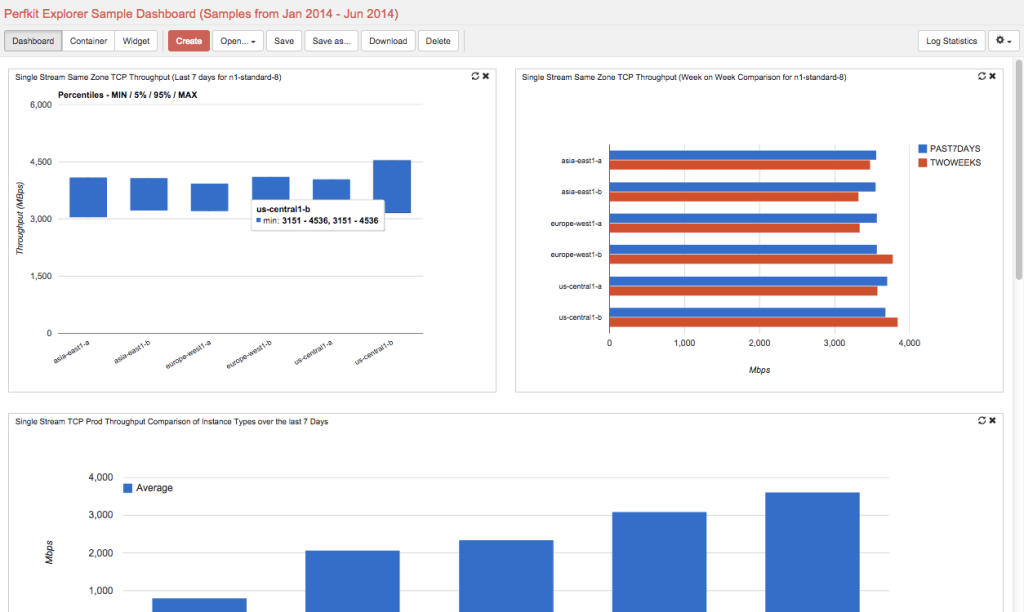 Google today launched PerfKit,
an open-source cloud-benchmarking tool that, in Google’s words, is an
“effort to define a canonical set of benchmarks to measure and compare
cloud offerings.” The PerfKit tools
currently support Google’s own Compute Engine, Amazon’s AWS and
Microsoft’s Azure clouds. Google says it has worked on this project with
over 30 researchers, companies and customers, including ARM, Canonical,
Cisco, Intel, Microsoft, Rackspace and Red Hat.
Google today launched PerfKit,
an open-source cloud-benchmarking tool that, in Google’s words, is an
“effort to define a canonical set of benchmarks to measure and compare
cloud offerings.” The PerfKit tools
currently support Google’s own Compute Engine, Amazon’s AWS and
Microsoft’s Azure clouds. Google says it has worked on this project with
over 30 researchers, companies and customers, including ARM, Canonical,
Cisco, Intel, Microsoft, Rackspace and Red Hat.As Google points out in today’s announcement, evaluating the performance of different cloud services isn’t easy. There are a few companies like CloudHarmony that offer cloud-performance reports (and tools like New Relic obviously let you monitor your existing installs), but none of these take your specific needs into account, and it’s often unclear how those tests were performed.

It’s cool to see Google launch an open-source benchmarking tool like this. The company has long said that it isn’t afraid to pit its cloud performance against its competitors’. It’ll be interesting to see the first cross-cloud benchmarks from this tool, though, to see where it really stands.